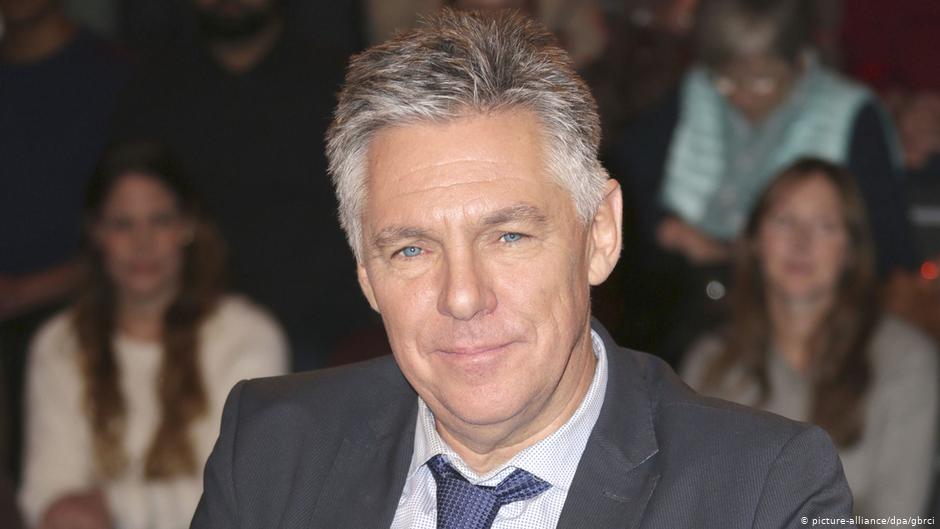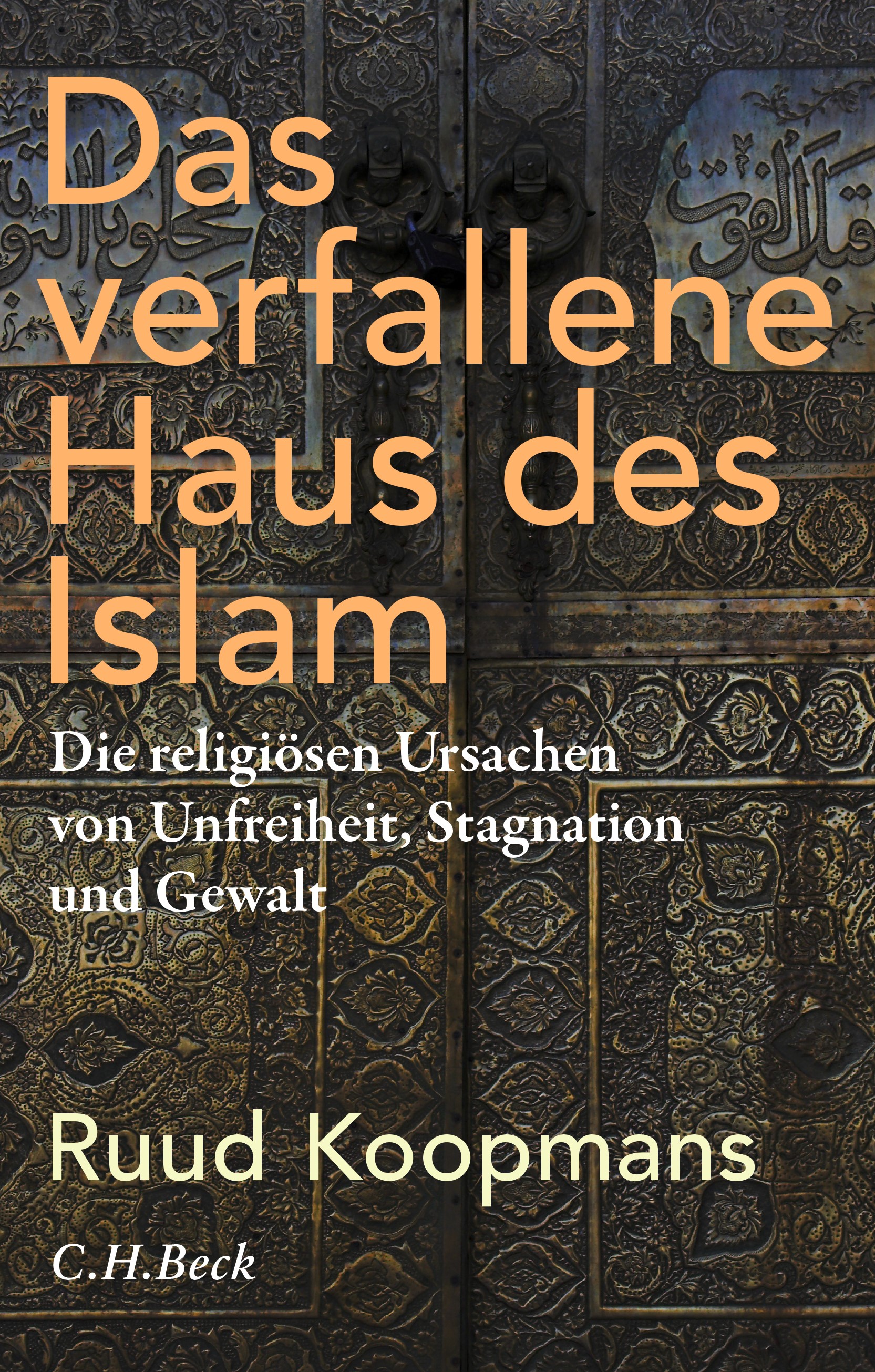Cherry-picking for a distorted image of Islam

In the past, Islamic scholars referred to territories under Islamic rule as the "House of Islam". To this day, this rather flowery phrase remains popular among Western journalists and writers. The Dutch-born sociologist Ruud Koopmans, for example, uses it in the title of his book Het vervallen huis van de islam (literally, the derelict house of Islam), which has just been published in German translation, to underline the things that predominantly Muslim countries have in common.
Koopmans is certainly not the first writer in recent years to diagnose the decline of the "Islamic world": Bassam Tibi, Bernard Lewis, Dan Diner, Samuel Huntington, Hamed Abdel-Samad and most recently Thilo Sarrazin have all trodden this path before him. These writers all reached similar conclusions in their books, namely that the reason for this decline is above all the area's religion, Islam.
Most of these books were considered highly controversial by experts in the field owing to their crude, yet pithy theories. Nevertheless, they all attracted huge media attention, and many of them went on to be bestsellers. The theory that religion is the main reason for the decline of the Islamic world is very popular in the West, among other things because it absolves the West of any share of the responsibility for the prevailing plight.
"Derelict house"?
But is the image of a "derelict house" even accurate? After all, in Saudi Arabia and the Gulf states, skyscrapers are springing up like mushrooms after the rain. Arab sheikhs are using their petro-billions to buy football clubs in the West and to renovate old mosques in the Balkans or build new mega-mosques around the world. It is also inaccurate to talk of decline or dilapidation with regard to Turkey, Indonesia or Malaysia, at least in economic terms.
In contrast, it is above all formerly secular Arab republics such as Egypt, Iraq, Libya, Syria and Yemen – which have been buffeted by military coups and wars – that are in dire straits.

Koopmans is undoubtedly right that many predominantly Muslim states are in a deplorable state in terms of democracy and human rights. And he is undoubtedly right to conclude that the rise of a fundamentalist form of Islam in recent decades has not made things any better in this respect.
The fact that state and religion are not separated and the exploitation of Islam to political ends have instead made matters worse, especially for women, religious minorities and homosexuals, restricting civil liberties.
Koopmans also writes that petro-billions from the Gulf have helped spread a fundamentalist version of Islam. It would have been more interesting had he examined which other factors facilitate the rise of Islamic fundamentalism and which contain it.
But Koopmans writes as if this development over recent decades is a phenomenon that can be considered in isolation from events in the rest of the world and world politics. A development that is purely intrinsic, to be explained solely on the basis of religion.
According to this theory, Islamic fundamentalism has been able to flourish because Islam is by nature fundamentalist. This sounds self-explanatory, but it is a pretty simplistic explanation for a sociologist to put forward.
Islamist or Islamic? A lack of differentiation
Although Koopmans writes in his introduction that he is well able to differentiate between traditional Islam and modern fundamentalism, the brushstrokes he uses in the book get increasingly broader as the book progresses. He refers to states such as Senegal and Tunisia, which have secular constitutions, as "Islamic democracies".
He also uses the sweeping terms "Islamic democratic deficit" and "Islamic anti-Semitism" without ever actually illuminating in any detail the role of religion in either. Moreover, when he writes about militant Islamists, he calls them "Islamic insurgents" or "Islamic groups". Such a lack of subtle differentiation is quite disturbing.
In the subtitle of the German translation of his book (Die religiösen Ursachen von Unfreiheit, Stagnation und Gewalt), Koopmans claims that there are "religious causes" for the "stagnation, violence and lack of freedom". Yet nowhere in the book does he explain what, in his opinion, separates the legitimate religious conservative interpretation of Islam from the fundamentalist interpretations.
Instead, he compares Islam with communism, and the gender attitudes of conservative Muslims with the South-African apartheid system. When Koopmans controversially uses the term "real Islam", it seems as if he considers Islam as a whole to be a political ideology rather than a world religion.
In an effort to prove that the backwardness of predominantly Muslim societies can be explained first and foremost by religion, Koopmans compares pairs of countries that have different religions. He compares the Maldives (Muslim) with Mauritius (predominantly Hindu and Christian), India with its neighbours Pakistan and Bangladesh, southern Nigeria (Christian) with northern Nigeria (Muslim), and Egypt with South Korea.
What doesn't fit is made to fit
In these comparisons, the predominantly Muslim countries and regions fare much worse than the countries with which they are being compared in terms of democracy, human rights and economic development. Koopmans uses this as evidence of the truth of his theory that it is above all Islam that stands in the way of democratic development. Had he compared South Sudan (Christian) with Sudan (Muslim), the Philippines (Christian) with Indonesia (Muslim), Serbia with Bosnia, or Albania with North Korea, the predominantly Muslim countries might have fared somewhat better in the comparisons. But that would, of course, have disproved his theory.
Koopmans provides more figures and statistics than Thilo Sarrazin. Although he uses these figures and statistics in a much more sound and academic way – quantitative social research is, after all, his field – just like Sarrazin, he uses these figures primarily to prove his theory. What doesn't fit is made to fit. And those facts that don't fit the theory are simply omitted. In this way, Koopmans levels out the differences between predominantly Muslim states. Yet no other "cultural area" in the world has such diverse types of state as the so-called "Islamic world": from secular democracies and dictatorships to parliamentary and absolute monarchies, from former socialist military regimes to modern Islamic theocracies.
Given that Koopmans is a sociologist, it is astonishing how small a role class and caste play in Koopmans' book and the degree to which he tries to explain everything using the woolly term Kultur (culture/civilisation). Unlike Huntington – to whom Koopmans incidentally makes very benevolent references – Koopmans seems to think there is only one "cultural field" in the world, i.e. the Islamic cultural field. His book gives the impression that only Muslims have "religion and culture".
Western wars and interventions ignored
In addition, one would expect an author who recommends that Muslims take a more critical look at their own traditions to lead by example and take a more self-critical look at his own culture. But there is no sign of this in Koopmans' book. He paints Western colonialism in very gentle hues, blocking out the darker aspects and not saying a single word about the ideological foundation on which it was built, namely racism.
While he meticulously lists the numbers of people killed in Islamist attacks, he assiduously ignores the long list of Western wars and interventions.
"Foreign interventions have not always contributed to an improvement in the situation," he writes laconically, adding that America's disastrous intervention in Iraq "did lasting damage to the credibility of the United States". What about the hundreds of thousands who lost their lives as a result?
The fact that Western interventions could have fuelled militant Islamism seems to escape Koopmans. Yet the Taliban, al-Qaida and IS would have been unthinkable without the wars in Afghanistan, Iraq and Libya. Another thing is that the book seems to be a little out of date. After all, the Western world is also in crisis at the moment, and democracy and human rights are being rolled back across the world.
At the same time, the events of the past few months in Iraq, Egypt, Iran, Lebanon or Algeria show that the yearning for a say and for justice is still driving people onto the streets in many predominantly Muslim countries.
Those wishing to know how these people can be supported in their efforts to achieve peace and freedom will not find any answers in Koopmans' book.
Daniel Bax
© Qantara.de 2020
Translated from the German by Aingeal Flanagan
